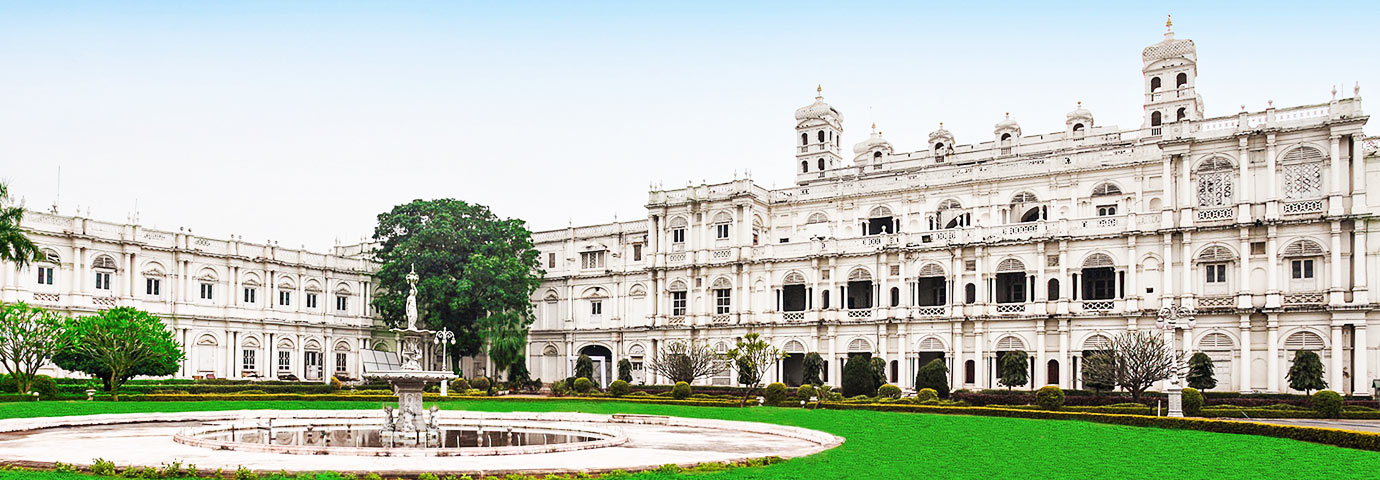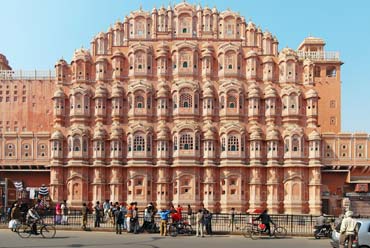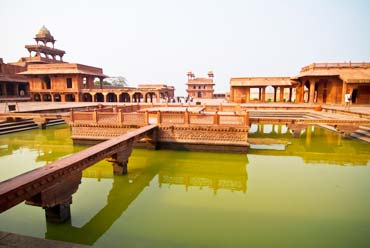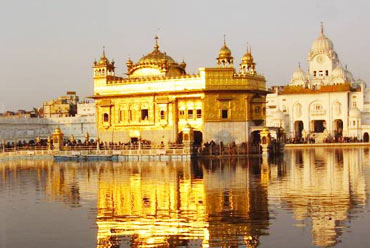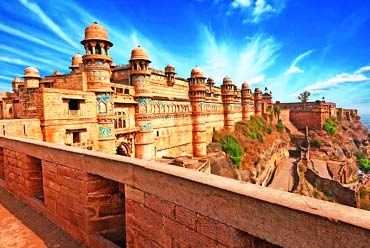Fast Facts
Opening Time
-
Open all days of the week except Monday and national holidays
-
10:00am- 4:45pm (April- September)
-
10:00am- 4:30pm (October- March)
Entry Fees
-
INR 100 per person for Indians
-
INR 600 per person for Foreigners
-
INR 70 for Camera/Mobile
-
INR 150 for Video camera
-
(*Free entry to children up to 05 years)
-
(**Free entry to physically challenged persons)
Best Time to Visit
Located in the heart of the city, Jai Vilas Palace is one of the grandest buildings of Gwalior. This beautiful palace was established back in the year 1874 by Jayajirao Scindia, the Maharaja of Gwalior. The palace features a beautiful blend of Tuscan, Italian and Corinthian styles of architecture.
Out of the 400 rooms of the palace, 40 rooms have been transformed into Jiwaji Rao Scindia Museum. While a part of the palace has been converted into a museum, one part is still the residence of the descendants of the former royal Maratha Scindia dynasty.
Spread over an area of 12, 40,771 square feet, Jai Vilas Palace is a popular tourist attraction of Gwalior. The palace features European architecture and was designed by Sir Michael Filose. Sir Michael Filose added a unique charm to the palace by using different architectural styles in all the three storeys. The palace is also known to house a collection of gadgets and antiques coming from the old times.
A visit to the palace makes you explore the royal times of the Maratha Scindia dynasty. This visit makes you flip back the pages of the luxurious lifestyle of the kings and queens of those times.
History and Legend
Built back in the year 1874 by Maharaja Jayajirao Scindia, Jai Vilas Palace was the residential property of the royal family of Scindia’s. A segment of the Jai Vilas Palace was converted into a museum by Rajmata Shrimant Vijayaraje Scindia, in the memory of Srimant Jiwajirao Scindia. Dr. Sarvapally Radhakrishnan, then president of India inaugurated the H.H Maharaja Jiwajirao Scindia Museum to the public on 12th December 1964.
Architecture
Jai Vilas Palace is well-known around the country for its beautiful architecture. Every part of the palace is intricately designed and decorated which speaks much about the craftsmen of those times. The palace is truly an architectural marvel as it combines Italian, Tuscan and Corinthian styles of architecture.
The most popular attraction of the palace is the Durbar hall, which is beautifully decorated with gold furnishings. The hall has one of the largest chandeliers of the world, which is believed to be the heaviest in Asia. The center has a large dining table which has a silver train that was used as a table trolley for serving food to the people.
Other attractions of the palace include reading rooms, drawing rooms, JSM hall, and breakfast room.
Star Attraction: H.H.Maharaja Sir Jiwaji Rao Scindia Museum
Set in the beautiful Jai Vilas Palace, Jiwaji Rao Scindia Museum is the most popular attraction of the palace. The museum takes back every visitor to the arts and crafts which grew during the Maratha Scindia dynasty. The museum aims to offer a great platform where people can learn about their history and expand their knowledge through research.
The museum houses a collection of swords which date back to the reign of Aurangzeb and Shah Jahan. It also preserves the original shield of Jhansi Ki Rani.
The museum is divided into different sections, depending on the type of collection it preserves.
There is a well-equipped library in the museum which contains around 5000 books. The library has a collection of books from different subjects which relate to the themes of the museum. Some popular books include those which speak about Gwalior’s role in World War I.
Chitrangada Raje Art Gallery is a part of the museum which will provide an opportunity to artists and craftsmen of the country to display their work to international audience. The only aim behind setting up the gallery is to promote the art and cultural heritage of Gwalior.
Offering much to explore, the museum attracts history buffs and photographers from all over.

